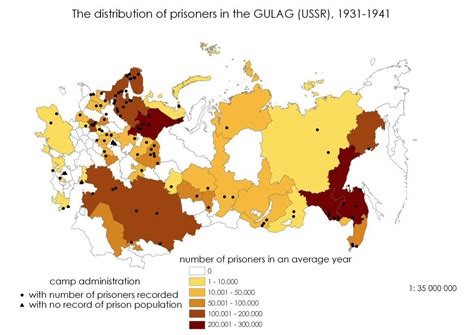Many Americans have believed that Orwell’s thought police would never become a reality in the US. Orwell’s seminal book Nineteen Eighty-Four described a dystopian future state that was an amalgamation of his observations of Nazi and Soviet totalitarianism. The thought police were his vision of a network of internal state police modeled after the KGB and Gestapo and supported by a vast network of informants (“snitches”). Their goal was to literally control the thoughts and minds of the citizenry and ensure compliance with all state directives, no matter how absurd.
In America today, the assault on the Constitution—and especially the First Amendment—is in full force, and this evil can only flourish if good people do nothing. The various actions of would-be American thought police are becoming bolder and more extreme these days, as noted here:
- A former Facebook executive called for conservative TV news outlets, including OANN and Newsmax, to be de-platformed by telecom giants, including Comcast, AT&T, and Verizon. Recently, CNN called for the end to Fox News.
- Harvard students are demanding that the university revoke diplomas from Trump supporters. Simon & Schuster broke its contract with Sen. Josh Hawley to publish his book just 4 months before its planned release. Regular citizens who were among the 300,000 attending the Jan. 6 Trump rally—people who never went anywhere near the Capitol—are now losing their jobs. It’s happening all over the country.
- After a Democratic National Committee official called for plans to “deprogram” the 75 million Americans who voted to re-elect Donald Trump—yes, that’s the word he used, deprogram, just like in hardcore communist nations—Rep. Alexandria Ocasio-Cortez has picked up the ball, demanding federal funding to “deradicalize” Trump supporters.
- Twitter executives can be seen on newly released video strategizing how they’re shutting down discussion of election fraud, just as Facebook has eliminated “Stop the Steal” ages. On and on it goes.
Like many leftwing media commentators, CNN’s Brian Stelter has been a consistent leftwing media voice arguing for the suppression of conservative voices, which he claims has nothing to do with censorship:
Stelter told his viewers that they really do not have to talk about censorship and simply should refer to reductions of free speech as “a harm reduction model.”
Stelter mocked those who have raised concerns over censorship and assured CNN’s viewers that there is nothing to fear from campaigns to censor and ban speakers. In addition, he appeared to defend campaigns to have Fox News dropped from cable carriers.
How Orwellian is that? We now have a new definition of censorship: harm reduction!

Corporations, the feds, state governments, Democrat media operatives, Academia—all cultural and political institutions that the Democrats and the Left have captured over the years—are joining in the vindictive suppression of conservative voices in direct violation of the First Amendment. They are targeting Trump supporters specifically, and their plan of attack is described here. And we see more of their actions with each passing day:
- Facebook suppression of conservative accounts, especially blog sites, and independent media.
- YouTube demonetizing conservative media and podcasts.
- Summary firing and blacklisting of conservative actors who dare to disagree with Democratspeak.
- Fox News canceled Trump-supporting Lou Dobbs, who hosted their most-watched show on the Fox Business Network.
- Elected Democrats and Democrat operatives demanding that Republican senators resign for backing President Trump’s electoral college challenges.
- Big Tech and other corporate monopolies regularly do the Democrats’ political suppression dirty work.
- A very specific hypocrisy: a publishing house cancels a book contract for conservative U.S. Senator John Hawley (R-MO) while giving the corrupt son of Joe Biden a big book deal.
Fortunately for us Americans, history has been kind in showing us how other societies have fought back successfully against the thought police and the totalitarian state. One example is the clandestine underground media that sprang up across Europe during the Nazi occupation in World War II to counter the state-run media such as Völkischer Beobachter, the official newspaper of the Nazi party. Keep in mind that everything in those days was disseminated via print, which placed great personal risk on the publishers who operated the local clandestine presses that produced the newspapers, broadsheets, pamphlets, and other documents that were circulated among the people. As reported here:
"The underground press played a "crucial role" in informing and motivating resistance across the continent and building solidarity. They also created an "intellectual battlefield" in which ideas like post-war reconstruction could be discussed. Underground forms of media allowed for information sharing among the oppressed, helping them build solidarity, strengthen morale and, in some cases, stage uprisings."
Perhaps the best example of a successful underground press was the so-called samizdat, which sprang up in the USSR after Joseph Stalin’s death in 1953. Samizdat is a Russian word derived from sam (“self”) and izdatelstvo (“publishing”). It began as a revolt against the Soviet state’s suppression of any and all thoughts not in line with Communist Party ideology by academics and the intelligentsia and eventually broadened to include critiques by all sorts of independent voices on official Soviet policies and actions, especially those resulting in the suppression of Soviet citizens. As noted here:
"Because of the government’s strict monopoly on presses, photocopiers, and other such devices, samizdat publications typically took the form of carbon copies of typewritten sheets and were passed by hand from reader to reader."
 Photo: Wikipedia
Photo: Wikipedia
Soviet state-run media with Orwellian titles such as Pravda (“truth”) and Izvestiya (“news”) conveyed the Communist Party line of the day on domestic and foreign policy issues, as determined by the Soviet Politburo and Central Committee. Samizdat became the major method for Soviet dissidents and others to promulgate uncensored news and tweak the noses of the Politburo over the decades until the USSR was officially dissolved in 1991. Samizdat was also exported to the West (facilitated by Western intelligence services) in order to both embarrass the Politburo and also to enable Western governments to exert pressure on the Soviet regime, especially related to human and civil rights. Read more about the origins of samizdat and its effectiveness here, here, and here.
 Samizdat was the means by which the world came to know of the great Russian novelist and philosopher Aleksandr Solzhenitsyn and his seminal works such as The Gulag Archipelago (1973-8). His books shocked the world about the Soviets’ continuing operation since World War II of “gulags” (an acronym from the Russian words Glavnoe Upravlenie Lagerei, which stands for “Main Camp Administration” in Soviet political prisons and concentration camps). These camps existed all across the USSR, and their purpose was to repress and “re-educate and rehabilitate” all manner of political prisoners deemed by the Communist Party of the Soviet Union to be “enemies of the state.” The MVD/NKVD/ SMERSH/KGB thought police regularly arrested dissidents and sent them “into the gulag” for long sentences. Solzhenitsyn spent over a decade in the camps and internal exile and lived to expose the sordid system to the world.
Samizdat was the means by which the world came to know of the great Russian novelist and philosopher Aleksandr Solzhenitsyn and his seminal works such as The Gulag Archipelago (1973-8). His books shocked the world about the Soviets’ continuing operation since World War II of “gulags” (an acronym from the Russian words Glavnoe Upravlenie Lagerei, which stands for “Main Camp Administration” in Soviet political prisons and concentration camps). These camps existed all across the USSR, and their purpose was to repress and “re-educate and rehabilitate” all manner of political prisoners deemed by the Communist Party of the Soviet Union to be “enemies of the state.” The MVD/NKVD/ SMERSH/KGB thought police regularly arrested dissidents and sent them “into the gulag” for long sentences. Solzhenitsyn spent over a decade in the camps and internal exile and lived to expose the sordid system to the world.

Will the First Amendment ever be eroded to the point that Democrat thought police have legalized abilities supported by the federal government that will enable them to actively suppress conservative speech as once transpired in Nazi Germany and Soviet Russia? Will an American version of the repressed Aleksandr Solzhenitsyn first become known to the rest of the world via American samizdat? While those might seem to be absurd possibilities at this juncture, consider this: how many Americans before the year 2020 ever dreamed that violent rioters would be allowed free reign to destroy over $2 billion of private property in U.S. cities without legal consequences? And what is the goal of the cancel culture if not to completely eradicate American institutions and culture (including our First Amendment right to disagree with their actions!), which we conservatives seek to preserve?
 If political violence in the streets on behalf of Democrat political agendas is permissible, and the cancel culture continues to be enabled by the Democrat Party, then a nearly complete and harsh suppression of conservative dissent is by no means an impossibility. And that suppression could easily lead to American versions of samizdat in modern digital form. New applications such as Telegram, Clouthub, Gab, Rumble, Brighteon, and many others—along with the many online independent and conservative blogs, podcasts, and individuals fleeing the constraints of Facebook and YouTube et al. in pursuit of uncensored and uninhibited expression—are in fact early forms of conservative samizdat.
If political violence in the streets on behalf of Democrat political agendas is permissible, and the cancel culture continues to be enabled by the Democrat Party, then a nearly complete and harsh suppression of conservative dissent is by no means an impossibility. And that suppression could easily lead to American versions of samizdat in modern digital form. New applications such as Telegram, Clouthub, Gab, Rumble, Brighteon, and many others—along with the many online independent and conservative blogs, podcasts, and individuals fleeing the constraints of Facebook and YouTube et al. in pursuit of uncensored and uninhibited expression—are in fact early forms of conservative samizdat.
Conclusion
Being demonetized and booted by the social media giants, hidden by Google’s left-biased
web search algorithms, and doxed by the Democrats’ brownshirts of Antifa and BLM could very likely lead to a future of “underground” conservative and independent media in order to bypass the Democrats’ emerging cadre of thought police and their Big Tech allies. The evidence of the Democrats’ suppression of political dissent is all around us and is increasing daily. Get ready for American versions of samizdat because the day is coming soon when they will be the only sources of truth in this country.
Stu Cvrk served 30 years in the US Navy in a variety of active and reserve capacities, with considerable operational experience in the Middle East and the Western Pacific. An oceanographer and systems analyst through education and experience, Stu is a graduate of the US Naval Academy, where he received a classical liberal education. This functions as the key foundation for his political commentary. He threads daily on Twitter on a wide range of political topics, such as the military, foreign policy, government, economics, and world affairs.Twitter: @STUinSD


